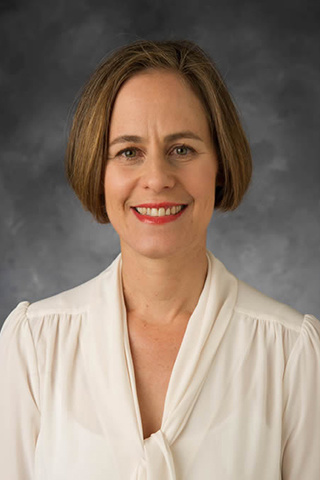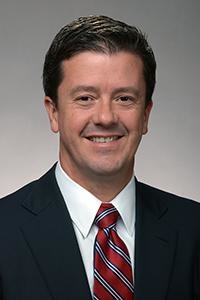When a University of Iowa faculty member takes on the role of departmental executive officer (DEO), the time commitment and expertise required can be a major challenge.
To help DEOs navigate new territory, the UI began the DEO Leadership Development Program, co-sponsored by the Office of the Provost and University Human Resources and led by Kevin Kregel, associate provost for faculty.
“These days, DEOs can face a steep learning curve,” says Kregel. “They work with students, parents, alumni, donors, faculty, and staff. They manage budgets, help implement the strategic plan, and report to higher administration. Basically, they’re overseeing an independent enterprise. It’s a lot for a faculty member to take on, so we work to support them and set them up for success.”
Many universities offer DEO training for faculty, who commonly assume the role of DEO as part of a three- to five-year rotation among the faculty of their department. What distinguishes the UI’s program is the partnership with University Human Resources, which provides one-on-one coaching to program participants.
Participating DEOs receive guidance on academic matters such as tenure reviews, diversity recruitment and retention, and curriculum management, as well as administrative matters such as problem-solving strategies or how to identify and leverage one’s personal strengths when leading others.
“When I talk to friends who aren’t at this university and they understand the level of training I’ve received, they’re floored,” says Rebekah Kowal, associate professor and chair of the Department of Dance in the College of Liberal Arts and Sciences. “I think it’s a wonderful program, and I’m just really grateful that I’ve been able to participate.”

Kowal participated in the program’s inaugural year, 2015–16. The program provided insights into a range of faculty needs, which Kowal says changes over the course of their career. The program also developed her negotiating skills, which have been useful as her department has outgrown its facilities and sought a new home. Kowal says she was especially appreciative of the coaching she received.
“The one-on-one coaching that I had with Nikole Mac, who does executive training with HR, was incredibly instrumental for me,” says Kowal. “She was able to take some of my particular situations and concerns and help me understand the kinds of decisions I had before me.”
Fabricio Teixeira, professor and head of the Department of Endodontics in the College of Dentistry, completed the program last spring and was in his second year as DEO when he decided to take part in the group. He says he read several books on departmental and academic leadership. He had also received guidance from supervisors at his college but still wanted to learn from other DEOs.

“I was trying to get to know DEOs across campus, see their struggles and get some input,” says Teixeira.
The No. 1 problem he faces as the head of endodontics is recruitment and retention, which might be similar everywhere else, Teixeira says. It is hard to compete with the private sector, and it can be difficult to retain well-trained endodontists who, after graduating from their advanced programs, become attractive to recruiters. The program introduced Teixeira to DEOs facing the same challenges, and he was able to discuss strategies and results.
“What my coach—and the program in general—was trying to accomplish was to take the opportunity for us to learn from each other,” says Teixeira.
Like all DEOs, Teixeira is always busy. Program participants meet regularly throughout the semester, and finding the time to attend workshops and sessions can be difficult.
“Every time I was told ‘Tomorrow you have the leadership program,’ I would think, ‘Oh my gosh, I’m so busy,’” says Teixeira. “But then I would go there and wish I had had more. I enjoyed the program.”
Now in its third year, the program is growing. The number of participants has doubled, the number of sessions has increased, and the provost’s office has begun organizing events for program alumni to continue to meet.
“We saw a need on campus and set out to meet it,” says Kregel. “It’s gratifying that people have responded positively and to learn that they are hungry to keep the experience going.”